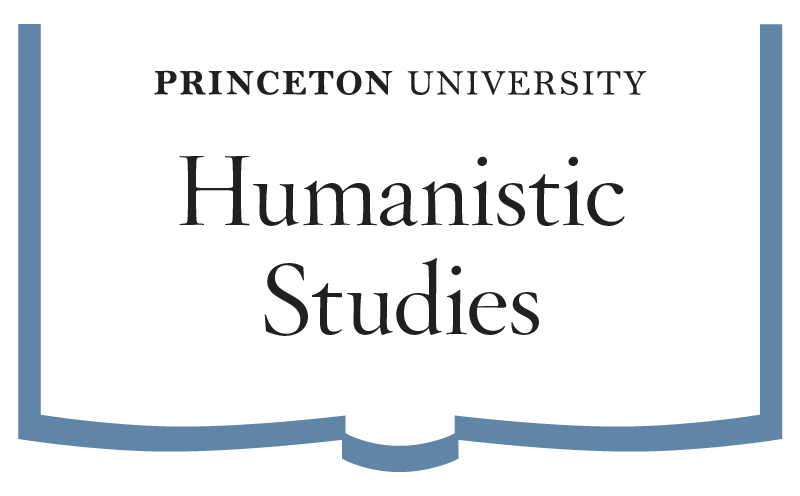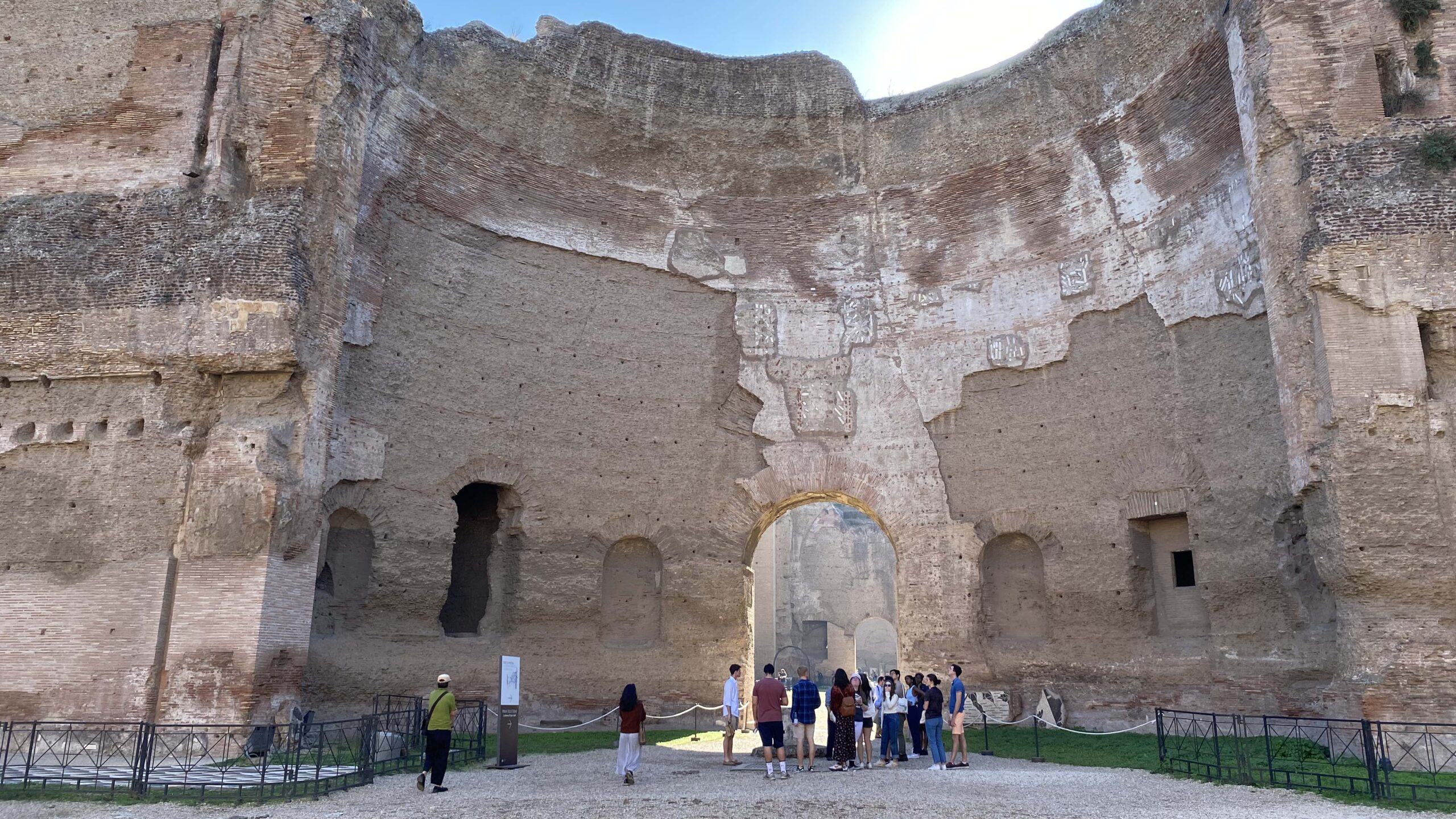The Program in Humanistic Studies invites students to reflect explicitly on the theory and practice of disciplines and to build bridges between them by approaching one field with the questions and methods of another.
HUM courses forge new paths to knowledge; they take interdisciplinary, comparative, and cross-cultural approaches to major questions, both urgent and timeless.
Requirements
To earn the minor in humanistic studies, students must fulfill the following requirements:
1) At least one 200-level “Humanities Sequence” course, whether double-credit (Western Humanities) or single credit (East Asian and Near Eastern Humanities), normally taken in the first or second year.
2) Four additional interdisciplinary courses:
- At least two of the four courses must be “HUM” courses, originating in the Program in Humanistic Studies.
– Two of the four courses must be taken at the 300 or 400 level. HUM 470: Interdisciplinary Studies in the Humanities, the capstone seminar for the minor, is highly recommended as one of these two courses.
– The four courses must be drawn from at least two of the following clusters, which demonstrate the broad reach of the humanities.
Tradition and Transformation
These courses deepen the study of partnerships among the possible combinations of religion, philosophy, history, literature, and the creative arts. They pay attention to the landmark achievements in an intellectual tradition, considering continuities as well as societal change, upheaval, and transformation.
Examples include, but are not limited to:
- HUM 216 – HUM 219 Interdisciplinary Approaches to Western Culture I and II
- HUM 233 – HUM 234 East Asian Humanities I and II
- HUM 247 – HUM 248 Near Eastern Humanities I and II
- HUM 230 Music and Language
- HUM 434 Counterworlds: Innovation and Rupture in Communities of Artistic Practice
- COM 310 / ENG 390 / HUM 390 The Bible as Literature
- HUM 312 The Literature of Medieval Europe
- HUM 412 Digging for the Past: Archaeology from Ancient Greece to Modern America
- MED 227 / HUM 227 The Worlds of the Middle Ages
- TRA 304 / HUM 333 Translating East Asia
- COM 310 / HUM 312 The Literature of Medieval Europe
Global or Comparative Humanities
Illuminating their study of one culture with comparative approaches to other areas of the world, these courses investigate one or more regions through various methodologies. To enhance their intercultural studies, program students have benefited from participating in global seminars or other study abroad opportunities.
Examples include, but are not limited to:
- HUM 290 Jesus and Buddha
- HUM 335 The History of Global Monsters
- HUM 240 Musical Theatre and Fan Cultures
- CLA 212 / HUM 212 Classical Mythology
- COM 310 / HUM 312 The Literature of Medieval Europe
- HUM 312 The Literature of Medieval Europe
- HUM 402 Making the Viking Age
- HUM 412 Digging for the Past: Archaeology from Ancient Greece to Modern America
- HUM 423 Poetry and War: Translating the Untranslatable
- HUM 450 Empathy and Alienation: Aesthetics, Politics, Culture
- MED 227 / HUM 227 The Worlds of the Middle Ages
- ART 361 / HUM 361 The Art and Archaeology of Plague
- HUM 470 Justice Then and Now
- TRA 304 / HUM 333 Translating East Asia
Engaged or Public Humanities
These courses explore links to the social sciences through such emerging fields as cognitive science, environmental studies, medical humanities, urban humanities, indigenous studies, and disability studies, among other fields. Students may pursue community-engaged research and scholarly activism.
Examples include, but are not limited to:
- HUM 315 Bio/Ethics: Ancient and Modern
- HUM 321 Excavate/Illuminate: Creating Theater from the Raw Material of History
- HUM 352 Arts in the Invisible City
- HUM 339 Religion and the City
- HUM 353 Indigenous Peoples and Christianity
- SLA 368 / HUM 368 Literature and Medicine
- HUM 470 Justice Then and Now
Humanities and Sciences in Dialogue
These courses consider how advances in natural science and engineering technology empower us to ask new kinds of questions and forge new kinds of knowledge.
Examples include, but are not limited to:
- HUM 315 Bio/Ethics: Ancient and Modern
- HUM 365 Freud on the Psychological Foundations of the Mind
- PSY 210 / HUM 210 Foundations of Psychological Thought
- STC 297 / HUM 297 Transformative Questions in Biology
- ART 361 / HUM 361 The Art and Archaeology of Plague
Data and Culture
Addressing an increasingly datafied society, these courses teach the ability to contextualize and interpret data as humanistic skills.
Examples include, but are not limited to:
- HUM 346 Introduction to Digital Humanities (required for this cluster)
- HUM 307 / ENG 277 Literature as Data
- HUM 475 Data and Literary Study: A Research Lab
Students may count at most two courses taken for the minor toward their major, with permission of the home department’s Director of Undergraduate Studies and the Humanistic Studies program advisor. The expectation is that courses for the minor will be taken for a letter grade. One PDF course may be counted with permission of the program director.
Apply
Students can apply to the Minor in Humanistic Studies as early as the spring of their sophomore year.
ApplyQuestions
Please contact Stephanie Lewandowski, Program Manager, Humanistic Studies, with questions about academic requirements.
Make an Advising Appointment
For students interested in learning more about the minor in Humanistic Studies or discussing the requirements of Humanistic Studies in relation to their academic goals and interests, please email humstudies@princeton.edu.
Current students enrolled in the minor may also make an appointment to discuss progress on requirements, course selection, summer opportunities, and other humanities-related research projects or questions.













